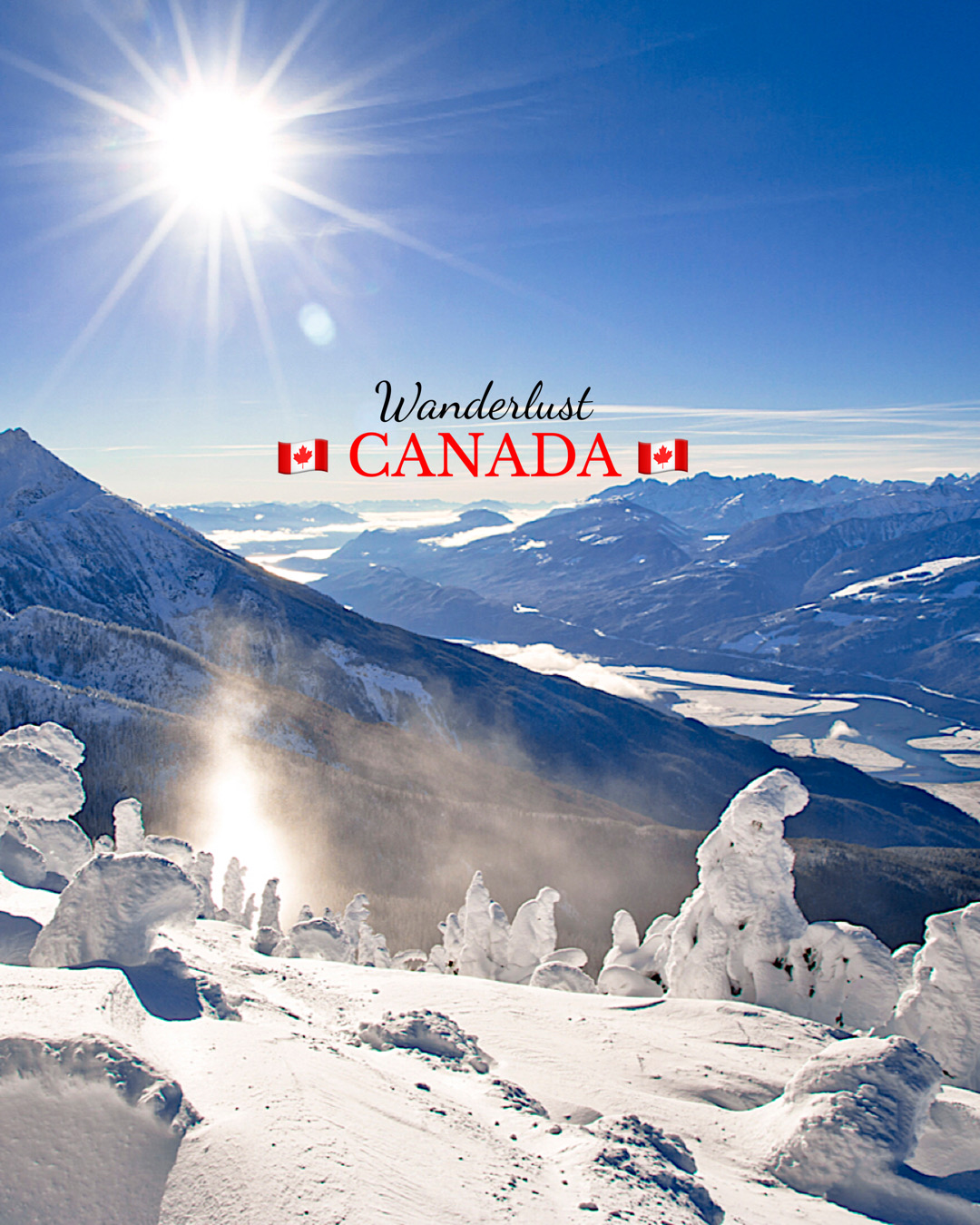With the North American ski season quickly approaching, Canada has just opened its borders to U.S. citizens. This is extremely good news to anyone looking to ski any of the big Canadian resorts this winter. We’re very excited to have our Canadian Packages back on offer, but there are some restrictions involved. Here’s what you need to know.
COVID Restrictions:
- You must be fully vaccinated at least 14 days prior to entering Canada. Fully vaccinated means you received the full series of a vaccine accepted by the Government of Canada. Currently, those vaccines are manufactured by Pfizer-BioNTech, Moderna, AstraZeneca/COVISHIELD, and Janssen (Johnson & Johnson).
- You must live in and be traveling from the U.S.;
- You must have a negative COVID-19 molecular test result taken no more than 72 hours before arriving in Canada. Antigen tests will not be accepted. Travelers must provide proof of their test results prior to entry. ;
- You must be asymptomatic (meaning but not limited to—no fever, no loss of taste or smell, no sore throat or cough, and no trouble breathing).;
- You must provide Digital proof of vaccination using the app ArriveCAN 72 hours before arriving. Travelers using the ArriveCAN app must have the most up-to-date version. People without a smartphone can submit the information at Canada.ca/ArriveCAN and print the receipt.
- You must also have proof of vaccination (paper or electronic) available for 14 days after entry into Canada.;
- You must be prepared to take a test on arrival if required.
COVID Restrictions for Children:
- Unvaccinated children under 12 may enter Canada with their fully vaccinated parents/guardians but must follow enhanced public health measures—meaning they can move around with their parents/guardians but must avoid group settings, such as camps or daycare, during the first 14 days after their arrival.
- Unvaccinated children between 12-17 may enter Canada with their fully vaccinated parents/guardians, but are subject to the 14-day quarantine. Special exceptions are possible for dependents over 18 who are unvaccinated due to mental or physical conditions.
- Unvaccinated children over the age of 5 are subject to the day-1 and day-8 testing requirements.
- Provinces and territories may have more stringent rules around people who have recently returned from travel.
Note: Not all land border crossings have testing on-site. Depending on where you cross, you may have the option of being tested there or given a test kit to do at home. A Nurse will supervise home testing via video call.
Stay Informed
Use these links to stay informed and get the most detailed and up-to-date information on eligibility to enter Canada and COVID-19 restrictions entering Canada. For specifics on local regulations, go to the COVID-19 travel page on the official Canadian website. The U.S. State Department Travel Advisory page is also a good resource. You can also always call us or refer to our website for travel updates.
Beyond COVID
Travel & Booking
COVID aside, travelers to Canada should expect all the typical customs and passport requirements. Getting in and out of airports will be a relatively slow process. Being prepared will help things go much smoother and quicker. For more on what airline travel is like these days take a look at our blog post on The New Normal.
Ski resort bookings are beginning quite early this year. It may sound self-serving, but you should be reserving in August or September to get the best rates and availability for travel between November and April. People traveling to Canada with children will want to reserve ski schools and other activities as early as possible, given the current restrictions. Keep in mind, unvaccinated children must avoid group settings, such as camps or daycare, during the first 14 days in Canada. This means private lessons or small group bookings will be harder to reserve the longer you wait.
Digital Nomads
People with the option to work remotely may want to take advantage of extended stays at their favorite resorts. Extended accommodations often negate COVID travel issues—especially for families with younger children—and can make for a much more relaxed traveling experience. Resort destinations like Whistler, Sun Peaks, and Banff are particularly well suited to guests in need of strong WiFi, fully equipped kitchens, comfortable surroundings, fitness facilities, and a professional business center. Think of it as your home away from home. We like to say, “If you have the option—why not live like a local?”
Tourist Activities
Restaurants, bars, shops, and sightseeing excursions are mostly back to pre-pandemic status with a few minor adjustments for social distancing. Some local businesses may also require masks (vaccinated or not). Your best bet is to do a little research before you book your trip to see if local requirements meet your expectations. While some things may not be the same, rest assured, your trip will be every bit as enjoyable. The key is having a little patience and remembering that everyone is just looking out for your safety and the safety of others.

